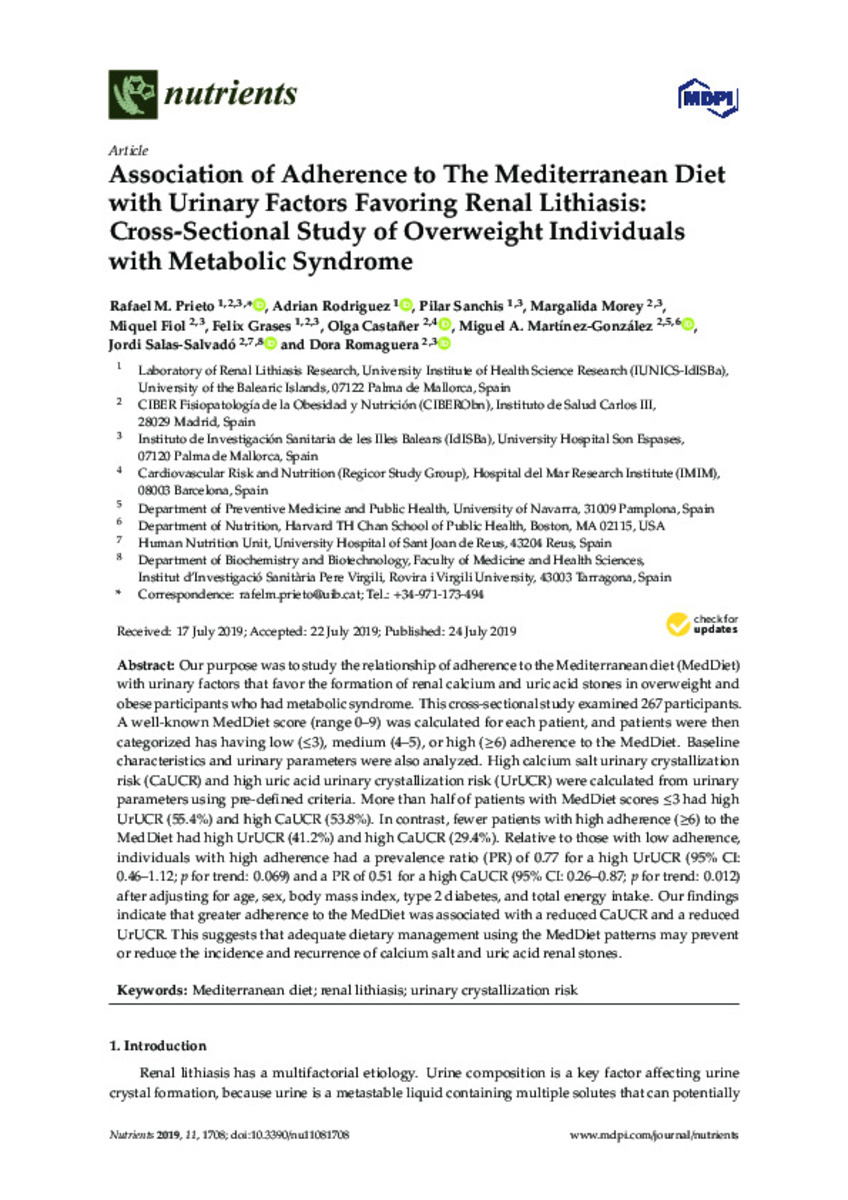Association of Adherence to The Mediterranean Diet with Urinary Factors Favoring Renal Lithiasis: Cross-Sectional Study of Overweight Individuals with Metabolic Syndrome
Keywords:
Materias Investigacion::Ciencias de la Salud::Medicina preventiva
Mediterranean diet
Renal lithiasis
Urinary crystallization risk
Note:
This article is an open access article distributed under the terms and conditions of the Creative Commons Attribution (CC BY) license (http://creativecommons.org/licenses/by/4.0/).
Citation:
Prieto, R.M. (Rafael M.); Rodríguez, A. (Adrián); Sanchís, P. (Pilar); et al. "Association of Adherence to The Mediterranean Diet with Urinary Factors Favoring Renal Lithiasis: Cross-Sectional Study of Overweight Individuals with Metabolic Syndrome". Nutrients. 11 (1708), 2019, 1 - 10
Statistics and impact
0 citas en

Items in Dadun are protected by copyright, with all rights reserved, unless otherwise indicated.








